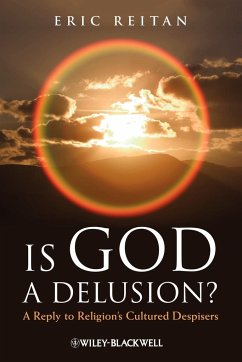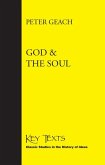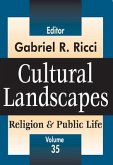The last few years have seen an escalation in angry attacks against religion and belief in God. Recent bestsellers such as Richard Dawkins' The God Delusion are just the most visible manifestation of a broader and more disturbing trend that views religion and theism as irrational--and even inherently evil. Responding with their own brand of vitriol, religious conservatives have been quick to strike back. But might there be a more balanced view between these extreme voices--a brand of theistic religion that respects science yet recognizes its limits; one that says "yes" to both reason and the deeper yearnings of the human soul? In a wide-ranging discussion incorporating profound philosophical insights, Is God a Delusion? argues that today's vocal religious critics have fixated on religion in its narrowest form. And in doing so they have failed to consider a religion whose essence is found not in inflexible doctrines, "infallible" holy books, or calcified institutions, but in a distinctive type of consciousness that points the way to a transcendent good beyond the world. With a philosophical nod to the revolutionary 19th-century theologian Friedrich Schleiermacher, the text defends those who find in religion the fulfillment of an ancient and profoundly human desire: the hope that somewhere beyond the universe that science can observe lies a deeper reality, one characterized by love and wisdom. A reality we call God.
"This book is to be appreciated for its readability, a trait notreadily found in many philosophers." (Lutheran Quarterly,July 2010)
"Makes an elegantly argued response ... that is refreshing inseveral respects. Neither polemical nor defensive ... he bringsinto the contemporary fray many philosophers who reasoned wellabout God long ago. He looks squarely in the face of thecontemporary horrors that many have used to argue for God'snon-existence and still comes off the theodicy battleground with asense of God as ethico-religious hope, 'the substance of thingshoped for.' The clarity of his presentation should make this bookuseful after atheism has finished its moment in the sun."(Publisher's Weekly Religion Update)
"Reitan's execution is truly remarkable, maintaining bothsympathy with the criticism of exclusive and closed-mindedreligious views while exposing fallacious and closed-minded attackson human expression of religious belief and hope.... Highlyrecommended." (Choice Magazine)
"In the book you get two things for the price of one. 1- Anintro to the philosophy of religion and 2- a fun, readable, andvigorous critical response to the New Atheists." (Tripp Fuller,Homebrewed Christianity)
"Reitan's resurrection of the phrase 'cultured despisers'underscores one of the most compelling purposes of his book,namely, to show that the arguments of today's articulate atheistsare rehash of yesteryear's angst." (Religion Dispatches)"Clear, penetrating, and thought-provoking, Reitan's work is abracing tonic for those in danger of being lulled into intellectualsleep by the strident claims of the 'new atheists'."
--Kenneth Miller, Brown University
"This is by far the best response to the 'new atheists' I knowof -- well researched, subtle, full of powerful argument and yetaccessible to all educated people."
--Thomas Sullivan, St. Thomas University
"Makes an elegantly argued response ... that is refreshing inseveral respects. Neither polemical nor defensive ... he bringsinto the contemporary fray many philosophers who reasoned wellabout God long ago. He looks squarely in the face of thecontemporary horrors that many have used to argue for God'snon-existence and still comes off the theodicy battleground with asense of God as ethico-religious hope, 'the substance of thingshoped for.' The clarity of his presentation should make this bookuseful after atheism has finished its moment in the sun."(Publisher's Weekly Religion Update)
"Reitan's execution is truly remarkable, maintaining bothsympathy with the criticism of exclusive and closed-mindedreligious views while exposing fallacious and closed-minded attackson human expression of religious belief and hope.... Highlyrecommended." (Choice Magazine)
"In the book you get two things for the price of one. 1- Anintro to the philosophy of religion and 2- a fun, readable, andvigorous critical response to the New Atheists." (Tripp Fuller,Homebrewed Christianity)
"Reitan's resurrection of the phrase 'cultured despisers'underscores one of the most compelling purposes of his book,namely, to show that the arguments of today's articulate atheistsare rehash of yesteryear's angst." (Religion Dispatches)"Clear, penetrating, and thought-provoking, Reitan's work is abracing tonic for those in danger of being lulled into intellectualsleep by the strident claims of the 'new atheists'."
--Kenneth Miller, Brown University
"This is by far the best response to the 'new atheists' I knowof -- well researched, subtle, full of powerful argument and yetaccessible to all educated people."
--Thomas Sullivan, St. Thomas University








